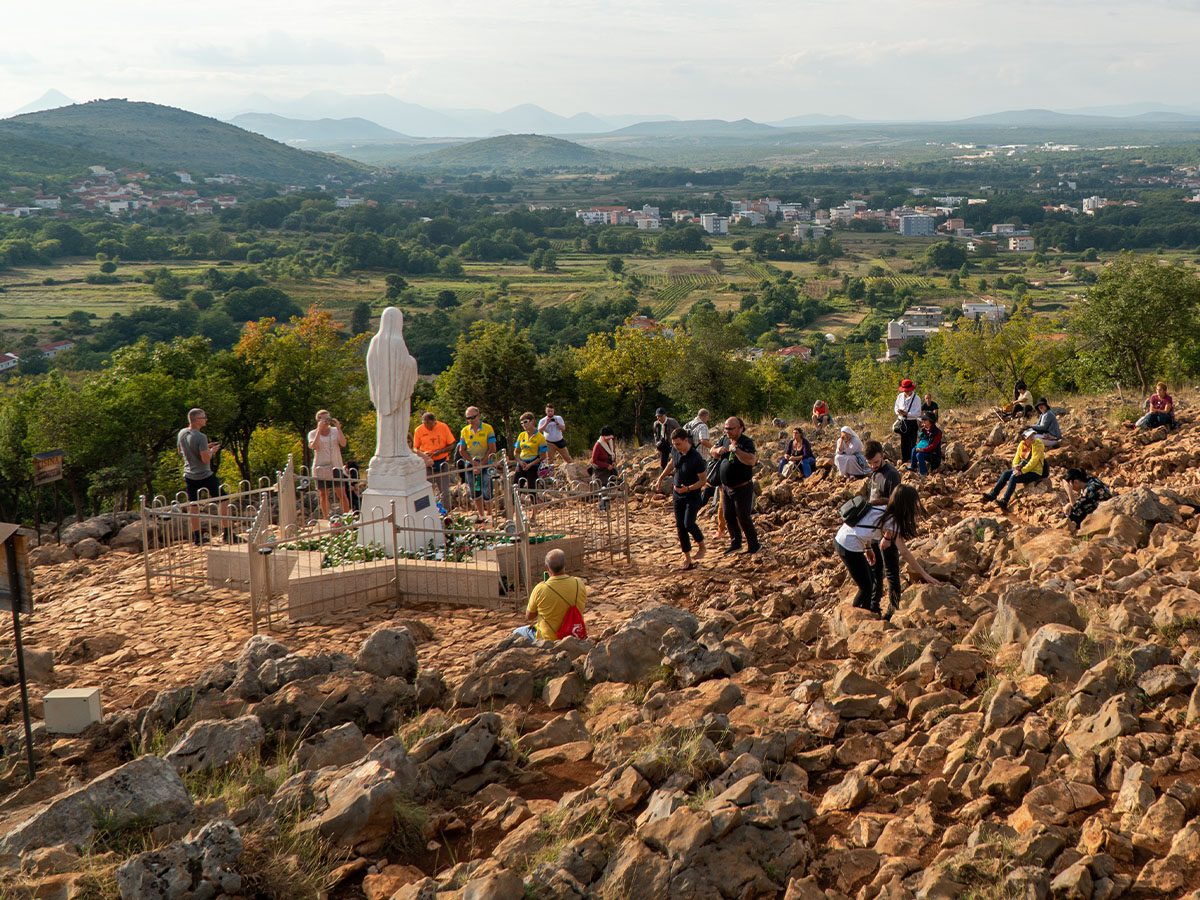
The Vatican’s Dicastery for the Doctrine of the Faith declared Medjugorje, a town in Bosnia and Herzegovina, has approved devotion at the site to the Blessed Virgin Mary. The site became popular in 1981 after a series of sightings of Mary were reported. The first sighting was recorded June 24, 1981, when Mary reportedly appeared to six children (referred to as “visionaries”) during a time of war for the region. People have claimed Mary continues to visit the site ever since, giving visions to people as she does so. Pope Francis also appointed a special envoy, Msgr. Henryk Hoser to further investigate the region. The Pope later authorized pilgrimages to the site on May 12, 2019, but cautioned against the approval as indicating verification of the Mary sightings.
The declaration from the Vatican, entitled “The Queen of Peace,” avoided making any conclusive remarks about the Mary sightings. It declared “nihil obstat” or “no objection” to the sightings, meaning the declaration was made “Without expressing any certainty about the supernatural authenticity of the phenomenon itself, many signs of the action of the Holy Spirit are acknowledged ‘in the midst’ of a given spiritual experience, and no aspects that are particularly critical or risky have been detected, at least so far.” “Queen of Peace” refers to the name Mary attributed to herself during her first appearance in 1981.
The Vatican’s declaration did note the sight as a source of positive spiritual fruit. “The positive fruits are most evident in the promotion of a healthy practice of a life of faith, in accordance with the tradition of the Church. In the context of Medjugorje, this applies both to those who had been previously distant from the faith, as well as to those who had practiced the faith only superficially,” it stated. The Vatican also stated that the appearance of positive spiritual fruit in devotees is not proof that all the visions are legitimate. “Moreover, the positive assessment that most of the messages of Medjugorje are edifying does not imply a declaration that they have a direct supernatural origin. Consequently, when referring to ‘messages’ from Our Lady, one should always bear in mind that they are ‘alleged messages.’”
The site has become somewhat controversial as visionaries continue to claim receiving messages, with some of the visionaries become a source of attraction for the pilgrims as well. The Vatican encouraged against meeting with alleged visionaries but that pilgrims should instead desire, “an encounter with Mary, the Queen of Peace, and – faithful to her love for her Son – to encounter Christ and listen to him through mediation on the Word, by participation in the Eucharist, and in Eucharistic Adoration.”


